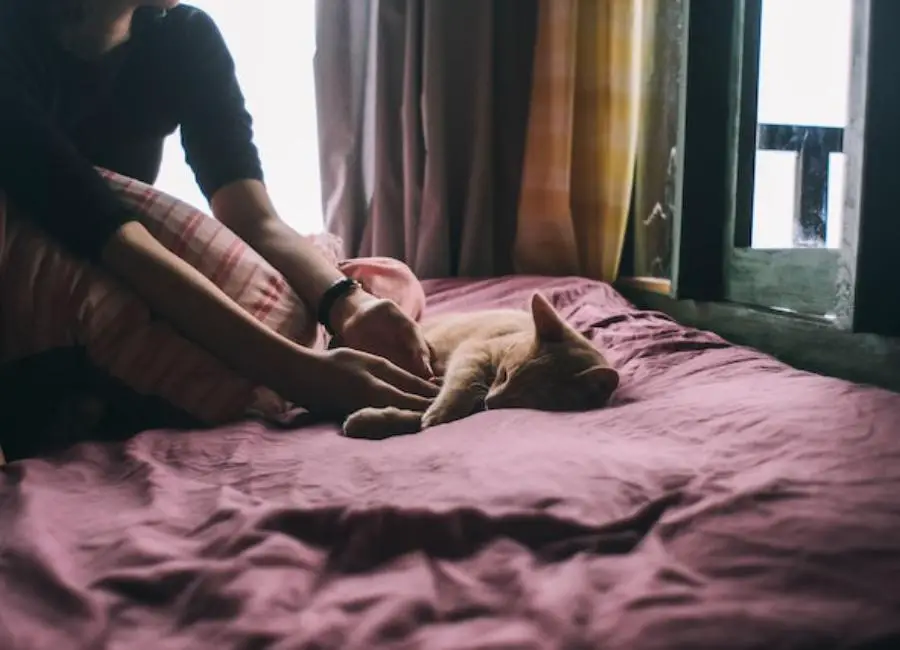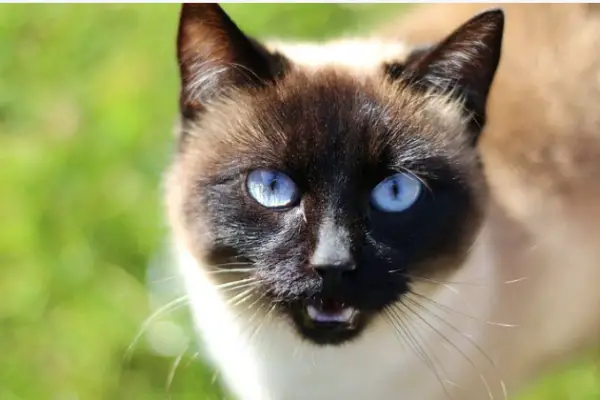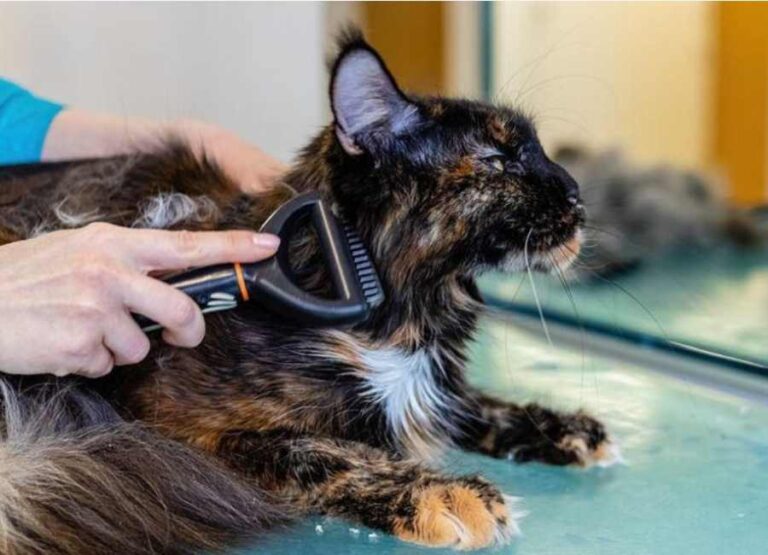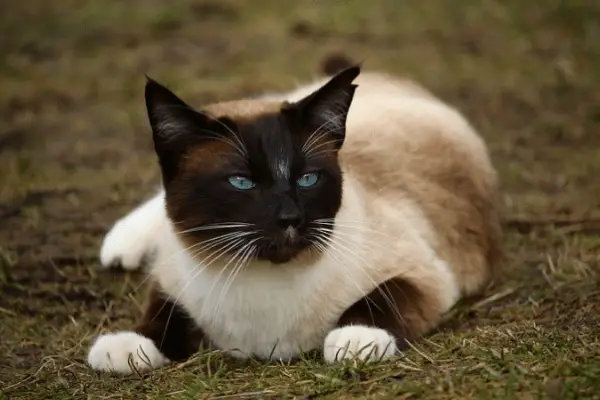What Does It Mean When Your Cat Sleeps On You?

Are you a cat owner wondering what it means when your feline friend insists on sleeping on top of you? You’re not alone!
Cat lovers everywhere have likely pondered this question at least once. Is it a sign of affection or just a comfy spot for your kitty?
Let’s explore this common feline behavior together and discover the meaning behind those cozy cuddles.
What Does It Mean When Your Cat Sleeps On You
Cats sleep on their owners because they feel secure and comfortable when they are close to them.
Cats may also cuddle up to their owners as a way of bonding or marking their territory.
Additionally, cats may enjoy the warmth and comfort that the human body provides, especially during colder months.
Furthermore, cats may view their owners as part of their family or social group, and sleeping with their owners may fulfill their need for social interaction and companionship.
Ultimately, every cat is unique and may have their own reasons for choosing to sleep with their owners.
Let’s break it down further…
Reasons why cats sleep on their owners
The following are some common reasons why cats sleep on their owners:
1. To improve bonding
Sleeping on your body or lap might be an indication of your cat’s love and trust for you.
They feel safe and secure and can form bonds with you when they are close to you.
This is particularly true if your cat was rescued or had a challenging past because the cat may require more comfort and confidence.
Your relationship with your cat can be strengthened, and their general well-being enhanced by spending time with them on your body or lap.
2. For comfort
Your body or lap is the ideal place for your cat to curl up and feel the comfort they desire.
They can feel how warm you are when they curl up on your lap, which can be calming and comforting to them.
Furthermore, your cat may find it cozy to lay on your body or lap due to its softness.
Many cats also appreciate having a blanket or piece of clothing covering them while they rest on their owners’ bodies or laps.
3. To feel secure
Cats are naturally cautious and worried animals, and they perceive their vulnerability while they are sleeping.
They may feel more secure while napping on your body or lap because they know you will look after them in case of need.
If you have young children or other pets in your home that may scare your cat, this may be particularly true.
Cats can feel safer and less stressed when they are close to their owners or sleep on their owner’s bodies.
4. To get more attention
Cats are gregarious animals who frequently yearn for human attention.
They are aware of having your whole attention when they are sleeping on your body, which can be a satisfying experience for them.
If your cat wants your attention, it might paw at you or purr happily on your body.
By showing your cat love and care, you may deepen your relationship with them and lift their spirits.
5. To show affection
Cats frequently knead their owners’ feet or rub their faces against them to indicate affection.
Your cat is expressing love and gratitude to you by taking a nap on your body.
They might also like the warmth and closeness that come with being near you physically.
This may be particularly true for cats who have a close bond with their humans.
6. For temperature regulation
Cats are sensitive to variations in temperature and frequently look for warm areas to rest.
If your cat is feeling chilly or the atmosphere is too cold, your body can offer the warmth and comfort they require.
Cats with short hair or older cats in particular may experience this.
Giving your cat a cozy place to rest can assist to improve their general welfare.
7. For territory marking
Cats mark their territory with smell glands they have on their faces and paws.
Your cat may be marking you as their own by sleeping on your body, signaling to other cats that you are theirs.
This is an indication that your cat values your contribution to their life.
Giving your cat a sense of ownership and territory can make them feel less stressed and happier.
8. To show dominance
Some felines may nap on their owners in an effort to show their dominance.
They could consider their owner to be a lesser being and feel the need to show their superiority by sleeping on them.
This conduct is less frequent than the other factors indicated above, though.
It’s critical to remember that this behavior could be troublesome if it results in aggressive or territorial problems.
9. To relieve anxiety and stress
Cats can become anxious, especially if they are left alone for a long time or in strange situations.
Cats feel safe and less stressed when they sleep on their owner’s body or around their owners.
Even when they are under stress or anxiety, it helps them feel secure and guarded.
For cats who struggle with separation anxiety or those who are healing from a traumatic event, this behavior might be very crucial.
Signs that your cat wants to sleep on you
Here are some common signs that your cat wants to sleep on you:
- Purring: Cats purr when they’re happy, relaxed, and content. If your cat is curled up on your lap or next to you and purring, it’s likely because they feel warm and safe and just wants to be close to you.
- Kneading: You know when a cat kneads with their paws in a soft, rhythmic motion like they’re making dough? That’s a sign that they’re feeling relaxed and happy, and it’s often a prelude to them settling down for a nap.
- Slow Blinking: If your cat is looking at you intently and then slowly blinks, known as a “kitty kiss,” it’s a sign that they feel comfortable and relaxed around you.
- Head Butting: Cats often show affection by “head butting” or rubbing their head against their favorite people. It’s their way of marking you as someone they feel safe with and want to be close to.
- Sitting on You: If your cat regularly seeks out your lap or even perches on your shoulder, it’s a sign that they want to be close to you and feel your warmth.
- Kittenish Behavior: Cats are more playful and energetic when they’re young, and they often want to sleep close to their owners when they’re feeling extra energetic or playful.
- Following You Around: Cats can be very territorial, but they also want to be close to their owners. If your cat is following you from room to room, it’s a good sign that they feel comfortable and safe around you.
- Sleeping Near Your Scent: If your cat likes to sleep on your pillow or near your clothes, it’s because they’re attracted to the scent of something that reminds them of you. They feel safe and comforted by your scent.
- Grooming You: Cats are social creatures and often show affection by grooming each other. If your cat licks you, it’s a sign that they consider you to be part of their social circle and trust you.
How to encourage or discourage your cat from sleeping on you
Here are some tips on how to encourage or discourage your cat from sleeping on you:
- Provide an alternative comfortable sleeping space: Cats like to sleep in comfortable places. Provide a cozy bed, a comfortable chair, or a plush cat tower as an alternative to sleeping on you.
- Consistency: If you don’t want your cat to sleep on you, be consistent in preventing it from doing so. Don’t allow them to sleep on you sometimes and then discourage it other times.
- Use a deterrent: You can use a deterrent such as a spray bottle with water or a pet-safe mat designed to discourage cats from sleeping on it.
- Positive reinforcement: If your cat is sleeping in the desired location, reward them with treats, pets, or verbal praise.
- Ignore: If your cat tries to sleep on you, ignore them and don’t provide any attention or physical contact.
- Train with a cue: Teach your cat to sleep in a designated area by using a specific verbal cue or a certain sound that signals them to go to their sleeping area.
- Create boundaries: Use physical barriers such as a baby gate or a closed door to restrict your cat from certain areas of the house.
- Remove temptation: Don’t leave your clothes or blankets lying around as cats are attracted to soft and warm surfaces.
- Consider the time of day: Cats are most active during the evening hours, so it’s important to provide them with activity and playtime during those hours to exhaust them for bedtime.
Learn more about how to encourage your cat to sleep with you.
Questions
Why does my cat always sleep on me?
Cats are social animals, and they often like to be close to their humans.
Sleeping on you may be a sign that your cat feels comfortable and secure around you.
Is it normal for my cat to sleep on my face?
While it may be cute, it’s best to discourage your cat from sleeping on your face.
Cats can accidentally suffocate their humans while they sleep, and sleeping on your face puts you at risk for respiratory issues.
What does it mean when my cat kneads me while sleeping on me?
Kneading is a behavior that cats exhibit when they’re happy and relaxed.
It’s thought to be a throwback to their kittenhood when they would knead their mother’s stomach to stimulate milk flow.
Learn more about why your cat is sleeping with you and not your husband.
Are there any health benefits to having a cat sleep on you?
Research has shown that spending time with cats can help reduce stress and anxiety, lower blood pressure, and improve overall mood.
So, having your cat sleep on you may have some health benefits.
Should I be concerned if my cat suddenly stops sleeping on me?
If your cat suddenly stops sleeping on you, it could be a sign of an underlying health issue.
It’s always best to monitor your cat’s behavior and consult with a veterinarian if you notice any sudden changes.
Learn more about how to make your cat sleep at night.
What can I do if my cat’s nighttime sleeping habits are disrupting my sleep?
Create a designated sleeping space for your cat, such as a cat bed or blanket.
You can also establish a bedtime routine for your cat to help them settle in for the night.
If the disruptions continue, consult with a veterinarian to rule out any underlying health issues.
Learn more about why your cat is sleeping so much.
Conclusion
In conclusion, if your cat sleeps on you, it means they feel safe and comfortable around you.
It’s a sign of trust and affection, and it’s a great feeling to know that your furry friend loves you so much.
So next time your cat curls up on your body for a nap, enjoy the moment and cherish the bond you share.
And if you’re looking for more ways to strengthen your relationship with your cat, try spending more quality time together, playing games, and giving them plenty of love and attention.


![When Do Cats Sleep The Most [Answered] When Do Cats Sleep The Most](https://petcreeks.com/wp-content/uploads/2023/10/keenan-barber-M7GJFakZObA-unsplash.jpg)
![Why Do Cats Hang Around My House [9 Top Reasons] Why Do Cats Hang Around My House](https://petcreeks.com/wp-content/uploads/2023/10/arteida-mjeshtri-XoXHijkYhPo-unsplash.jpg)


